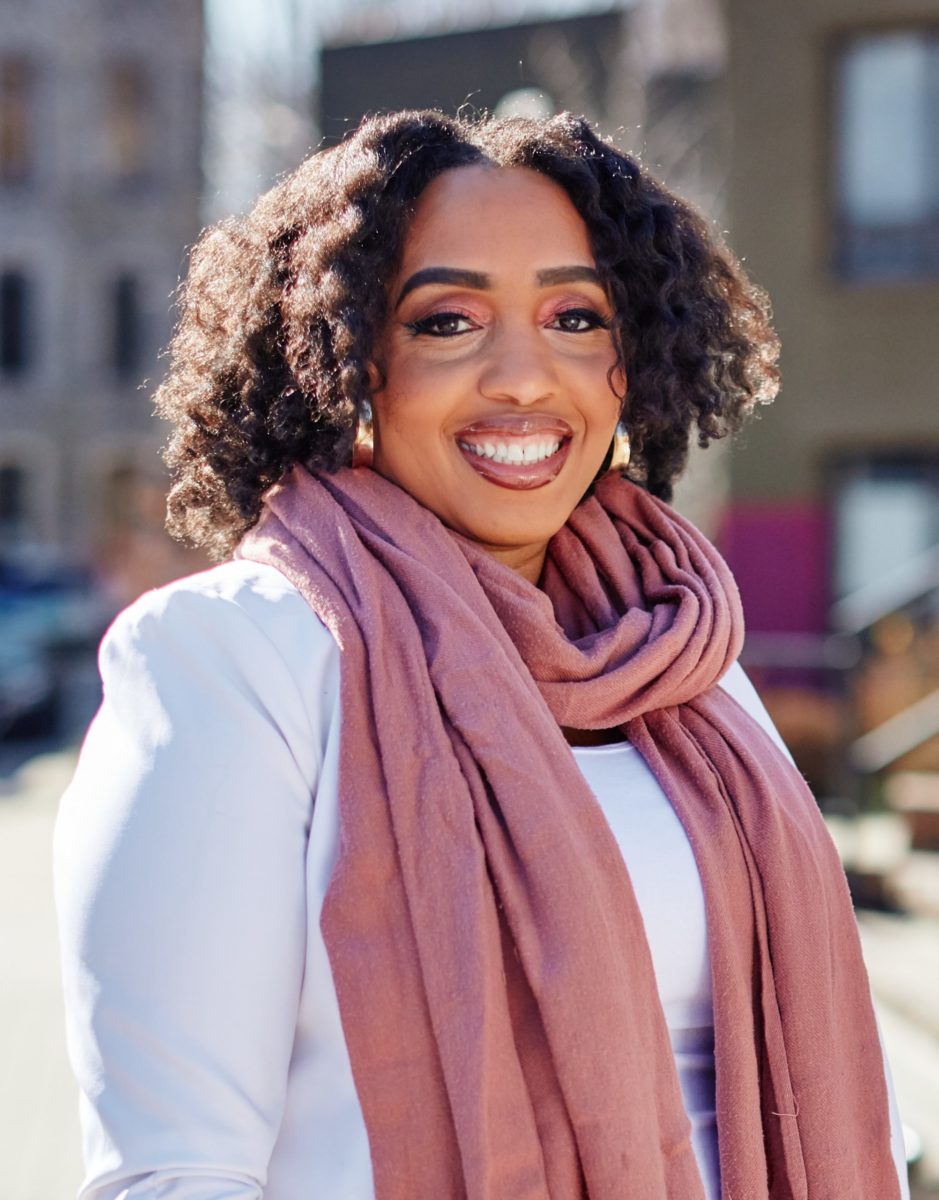Good things happen in Philadelphia
 October 13, 2020
Category: Featured, Medium, Purpose
October 13, 2020
Category: Featured, Medium, Purpose
Disclosures
This guest column was written by Jill Fink, the executive director of the Merchants Fund, and Shalimar Thomas, the executive director of North Broad Renaissance.The two organizations have so much in common that it was concerning that collaboration had never previously happened.
Even though one was created in the mid-1850s to help business owners who were overwhelmingly white and male, and the other was created to revitalize a long-standing business corridor impacted by decades of neglect and institutional racism, they had very similar goals. However, it took until 2019 for the two to finally join forces and all because of intention.
This is the story of the power of intention and how the COVID-19 crisis empowered the partnership to provide relief to businesses in the North Broad commercial corridor.
The Merchants Fund (TMF) founded in 1854, has a long history of providing financial support to Philadelphia merchants and small businesses. Throughout its many changes, it has evolved into an organization that awards grants to small, independently-owned neighborhood businesses in historically disadvantaged neighborhoods.
Over the past two years, TMF has strategically rebuilt its board by prioritizing intention for diversity and inclusion and recruited board members who reflect their values. Today, 82% of board members are BIPOC, 27% Latinx, and 45% women. Shalimar Thomas, executive director of North Broad Renaissance was one of those new board members recruited by Jill Fink, TMF’s executive director.
Founded in 2015, the North Broad Renaissance (NBR), a nonprofit that serves as a Special Service District on North Broad from City Hall to Germantown Avenue, is revitalizing the community, creating opportunities, and improving the economic power and overall quality of life along North Broad Street. Prior to COVID-19, North Broad housed more than 1,300 businesses. Yet, in spite of this, the annual median income remained at approximately $15,000. The data was a clear indicator that there was a lack of growth among businesses along the corridor.
Once the COVID-19 pandemic hit, NBR saw a tremendous impact on minority businesses. Intentional efforts were made to get more funding to Black and brown businesses as they became the most impacted and were made vulnerable by the pandemic.
From March through July of this year, in response to the dual crises created by COVID-19 and civil unrest, TMF made 250 grants totaling nearly $1.9 million in investments in locally-owned businesses — nearly six times the number of grants made in 2019.
TMF could have operated “business as usual” and used the existing grant application and guidelines. But it intentionally chose to remove as many hurdles as possible since, historically, many businesses had trouble accessing these grants as a result of hurdles like technology or language, and would just not apply.
The partnership between NBR and TMF benefited everyone; TMF had Philadelphia Department of Commerce Restore & Reopen Grants to distribute and NBR had the trusted relationships in the corridor.
The formal partnership between TMF and NBR — only six weeks old when COVID-19 brought Philadelphia to a standstill — resulted in nine grants being made to businesses in the NBR district. It may not seem like much, but consider that zero grants had been made in the same area over TMF’s 166 year history, and it is a huge step in the right direction.
And the results speak for themselves:
- BIPOC: 100% (9 of 9)
- Non-U.S. born: 78% (7 of 9)
- Women: 22% (2 of 9)
- Poverty 25%+: 100% (9 of 9)
However, a one-time grant is rarely enough and TMF and NBR’s partnership will only grow stronger in the years ahead. If ensuring that economic inequalities do not remain status quo beyond the pandemic, then it is important to improve oversight and business services to minority businesses, and businesses that operate in Black and brown communities, beyond the initial grantmaking process.
TMF is currently building a pilot program — Beyond the Grant — that will provide the support and assistance necessary to not just help grantees survive, but to thrive.
From the outset, this partnership was obvious, but it took the power of intention from both organizations to make it happen.
Both organizations’ goals are to disrupt and challenge existing systems in order to create a more equitable distribution of capital, shift power to those in the communities most impacted and build wealth in low-income communities.
Coupled with intention to support small business owners that have been historically disenfranchised because of a lack of access to capital, systemic racism and sexism and other predatory and discriminatory practices, this partnership truly exemplifies that good things happen in Philadelphia.
Trending News










